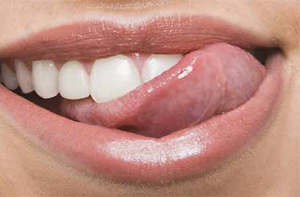Food with high water content is highly prescribed by doctors to stay hydrated during the summers, a season that summons a wave of soaring temperatures, higher than 40-degrees.
A much-loved fruit in India, apples are hydrating heros' in such a situation. A heatwave can affect human health in a varied manner and to maintain ideal body temperature in this soaring summer, one must remain adequately hydrated, be protected from the sun and maintain hygiene.
Working professionals and people who must step out in summers, are prone to the heatwave impact. Pediatric experts and doctors agree on the benefits of drinking water and eating fruits, especially, apples. 'An apple a day, keeps the doctor away' is true as they are rich in a number of vitamins with great anti-inflammatory benefits and many other essential minerals. Washington Apple Commission spells how apples can prove to be a summer-friendly fruit.
People often don't realise the danger of exposing themselves to extreme heat. Older adults, young children, and people with chronic illnesses are most at greater risk for serious problems. The nutrition benefits of apples may help not only in avoiding such illnesses but may also protect against many such conditions.
As popular as apples are as a fruit, they are enriched in antioxidants, dietary fibers, vitamins and a range of other nutrients that are greatly beneficial in maintaining good health. The fruit is rich in soluble fibers which may help prevent several health conditions and may lower the risk of major diseases such as heat strokes, diabetes and cancer.
The soluble fiber also promotes weight loss and improves gut health. The prebiotic effects of apples help feed the good bacteria in the gut, thus, improving digestion.
Apples are made of 85 percent water and contain vitamins, fibres and antioxidants. A high fibre content is a particularly beneficial property of apples, as improper digestion is a major health concern in the tropical climatic region. Apples are also enriched in antioxidants that help protect the lungs from oxidative damage and help oxygen flow through the blood.
Apple-based recipes
Make interesting snacks, dessert, beverages and savoury meals with this miraculous fruit during summers.
Salted apple caramel galette
Caramel apples get a grown-up makeover with this Salted Caramel Apple Galette. Warm, gooey, and delicious, this pastry is loaded with apples and homemade caramel. It's a sophisticated take on a childhood favorite and since it's easier to make than pie, it's perfect for summer get-togethers.
Caramel apple pie ice-cream sandwiches
Nothing is better at a cookout on a warm day than a cold, refreshing ice cream sandwich. In Caramel Apple Pie Ice Cream Sandwiches, the comforting flavor of apple pie is recreated in a creamy frozen banana-based ice cream studded with apple and date pieces. Then that scoop of ice cream is sandwiched between two pieces of no-bake cinnamon oat cookie dough.
 Chewing requires a complex interplay between the tongue and jaw, with the tongue positioning food between the teeth and then moving out of the way every time the jaw clamps down to grind it up.
Chewing requires a complex interplay between the tongue and jaw, with the tongue positioning food between the teeth and then moving out of the way every time the jaw clamps down to grind it up.




Comments
Add new comment